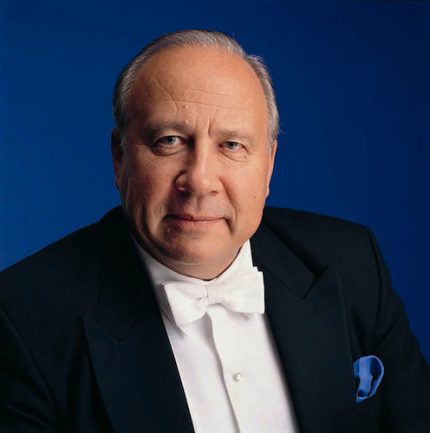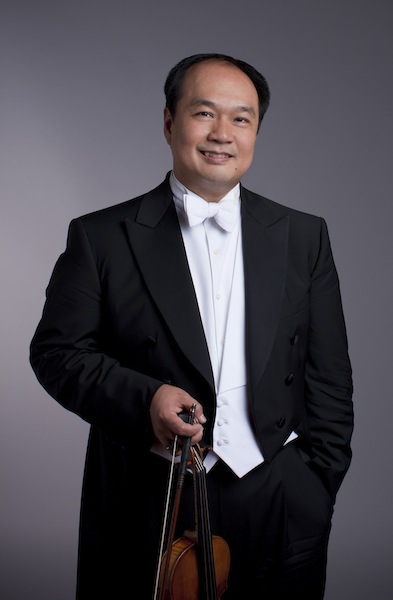Concertmaster Chen gets double turn in spotlight with Järvi, CSO
Neeme Järvi led the Chicago Symphony Orchestra Thursday night after its second high-profile guest conductor cancellation in a month. Three weeks ago James Conlon substituted for an ailing Bernard Haitink, and Järvi was stepping in for Christoph von Dohnányi, who is recuperating from a hairline pelvic fracture. It has been serendipitous that such established stand-ins have been available for these concerts.
Järvi was born in Estonia where he is currently artistic director of the Estonian National Symphony Orchestra, and the program opened with a signature work of Järvi’s most famous musical countryman—Arvo Pärt.
Pärt’s Fratres (Brothers) was written in 1977, shortly after the composer’s creative hiatus from which he returned with his new “tintinnabuli” style, which has become his calling card. Thursday the work was heard in its 1992 arrangement for solo violin, percussion, and strings with concertmaster Robert Chen as the solo protagonist.
Chen created a monastic atmosphere in the meditative arpeggios of the solo opening, despite fitful lapses of intonation. In the rest of the work the soloist performs arabesques over a tender melody in the accompanying strings, and these Chen delivered with persuasive character and contrast. His extended series of harmonics at the work’s close were especially haunting and ethereal–almost otherworldly.
Bartók’s Violin Concerto No. 1 followed with Chen also as soloist. Though written when Bartók was 26, this work was not discovered until over a decade after his death. The composer shelved the concerto after the disintegration of his relationship with violinist Stefi Geyer, who inspired it. The concerto predates Bartók’s exploration of Eastern European folk song that would shape his mature output, and is cast in a relatively neo-Romantic vein.
Chen gave the opening theme—meant to represent Geyer herself—elevated treatment and the extended wanderings of the opening Andante sostenuto had a beseeching quality, with delicate interplay between the soloist and his supportive colleagues. The second and final movement provided a more witty and impish contrast, but Chen often seemed buried in his score, which compromised any sense of interactive spontaneity. Soloist, conductor and orchestra marshaled their collective energy to deliver a striking coda, the close of which was met with appreciative applause from both the audience and Chen’s colleagues.
The second half was devoted to Beethoven’s well-worn yet beloved Symphony No. 6 (“Pastoral”), for which Chen was back in his usual concertmaster seat. In the opening movement Järvi favored the active figuration that almost always surrounds the more static melodies, creating a feel of bucolic freshness, though for some reason he eschewed the substantial repeat. The conductor imbued “The Scene by the Brook” with gentle forward propulsion–always welcome here where a slow tempo can be lethal. Flutist Stefán Ragner Höskuldsson, clarinetist John Bruce Yeh, and bassoonist Keith Buncke made limpid, elegant solo contributions.
The third movement Allegro went with jovial swagger, its rustic dance elements vital and boisterous. Järvi cultivated an apt sense of tension and drama in the “Thunderstorm” movement where the CSO bass section earned significant kudos for their delivery of the notorious passagework. The hymn-like closing Allegretto shone with a majestic, reverential air that evoked Beethoven’s indication that the movement conveys “salutary feelings combined with thanks to the Deity.”
The program will be repeated 7:30 p.m. Friday at Wheaton College, and 8 p.m. Saturday and 3 p.m. Sunday at Orchestra Hall. cso.org; 312-294-3000.
Posted in Performances




